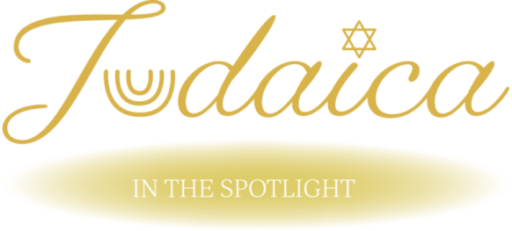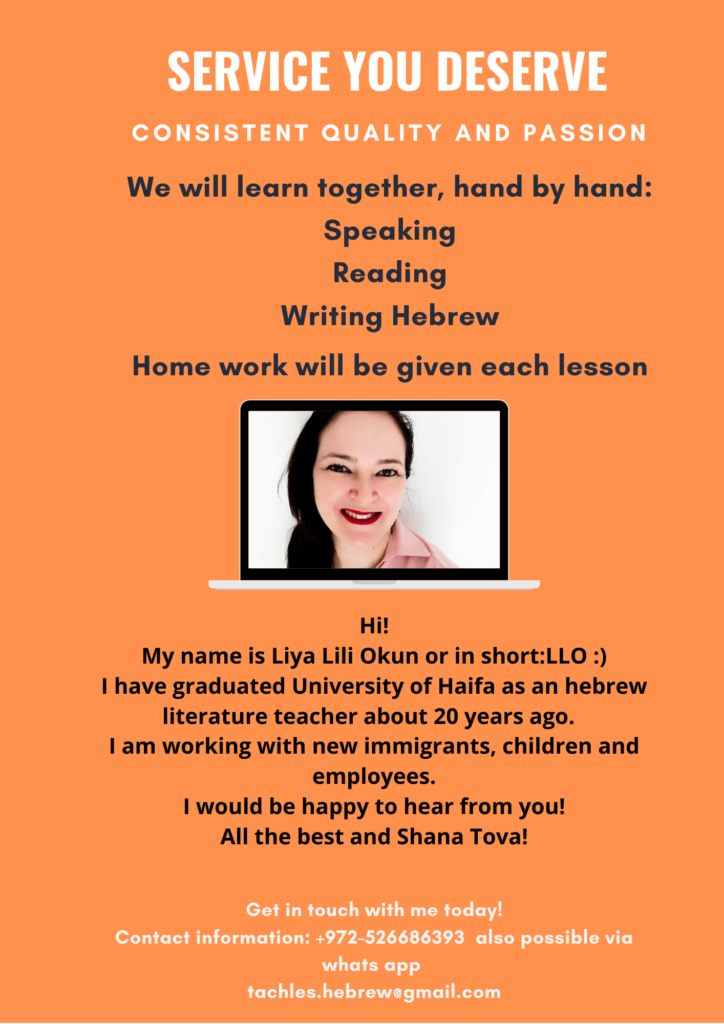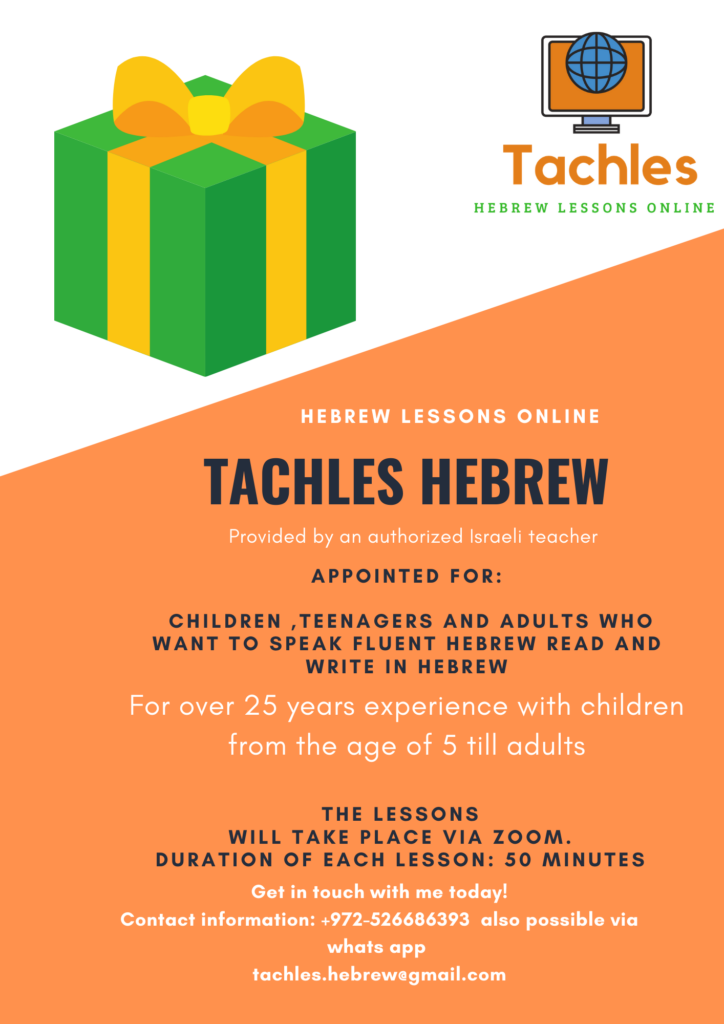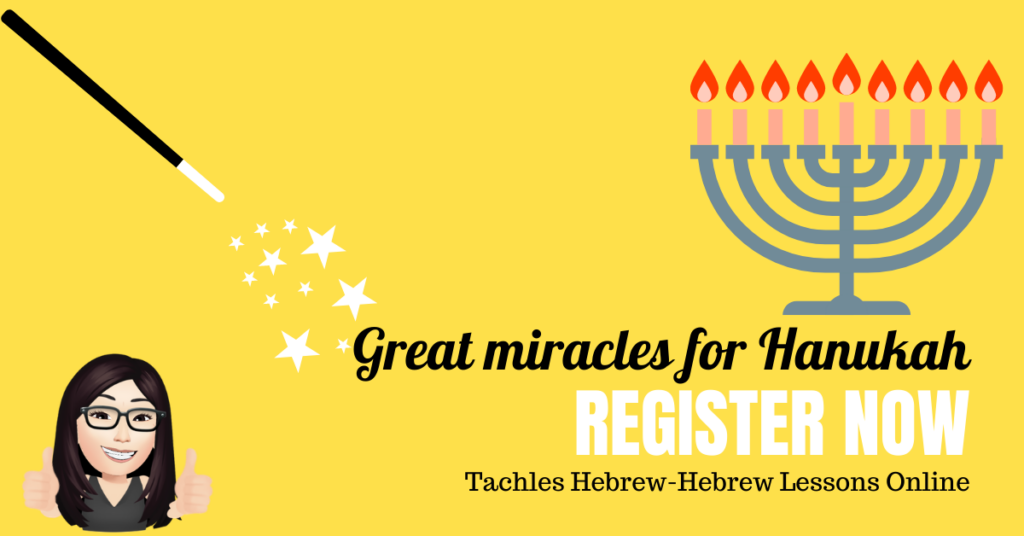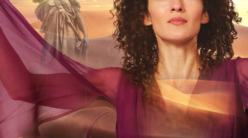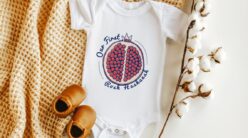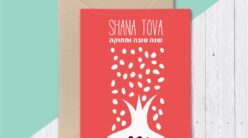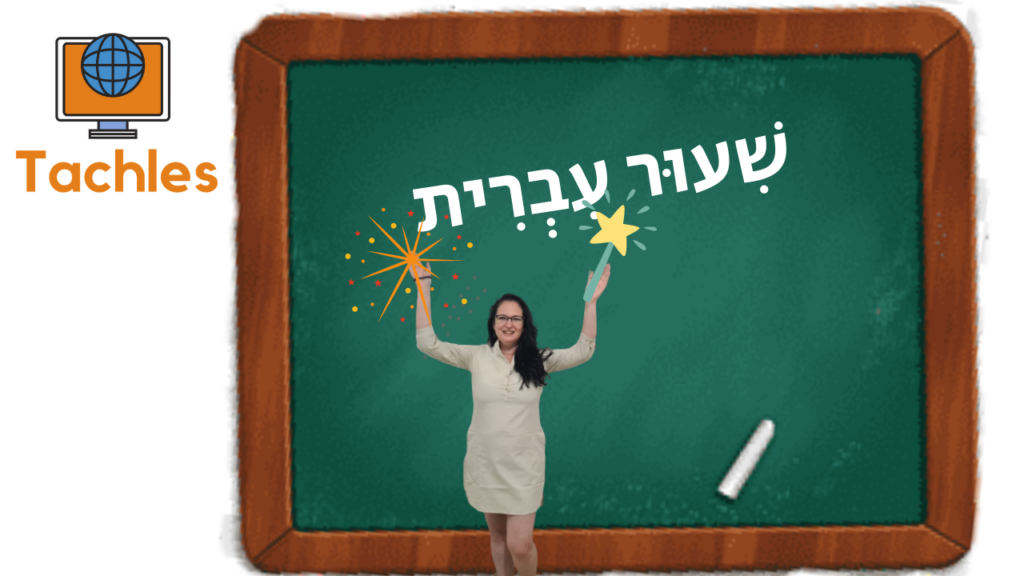
Photo: Courtesy of Tachles Hebrew
Tell us a little bit about yourself and your background.
It all started when I was only 5 years old. I was born in Nahariya, Israel, in 1978. My parents and grandparents came from Russia to Israel in 1973. On my fifth birthday, my grandfather bought me a blackboard together with a box of white and colourful chalks. He asked me to teach him Hebrew. I remember how he was confused with pronouns and pres’ words. When he spoke, he mixed Hebrew with Russian. His lacked Hebrew vocabulary despite his work at an aircraft manufacturer.
As a bilingual child, I consider Hebrew my native language. I have learnt to speak Russian from my grandparents. When I was 12 years old, I learned to read and write in Russian through a friend of my grandparents who worked as a Russian teacher in Russia. It took me two hours to learn how to read and write in Russian. I have always had a great language reception.
My late grandfather always asked me to sing him the songs of the late Ofra Haza and Yardena Arazi for him to record me on old reel tapes on his antique tape recorder from the 1980s. He would always ask me to translate the songs for him and years later he would sing “Chai”.
Throughout the years, while I was growing up, we have welcomed many new immigrants, mainly from Russia, to our house. These would be relatives and family friends all with children my age. We also hosted youth from the Youth Immigrants Without Parents Project. Two Russian girls and a boy would come to stay with us during the holidays and on weekends. I taught them all Hebrew and gave them tours of Acre, where I was born and grew up, in order to help facilitate their integration into Israeli society. Everyone just loved “chocolate milk” and “chocolate buns”!
I also went with them to the health fund, the municipal library, and the supermarket to teach them the names of the groceries available on the shelves. We would also do our homework together. I would help them with literature, language, History, Bible study and civic studies. Math was never my forte, so I was not able to help them with it, but they were able to help me in return!
As a teenager, I gave lessons in literature, Hebrew, Bible studies, and History. I went to high school and taught students all the way to the eighth grade.
My desire to become a Hebrew teacher only grew stronger. In 1997, when I was 19 years old, I started studying Hebrew and Comparative Literature at the University of Haifa, as well as French language and culture, and of course Education. I successfully received by degree and teaching certificate in 2002. My teaching certificate is valid for elementary schools all the way up to high schools and adult education.
After graduating, because I was still very young at 23, I decided to give lessons parallel to my regular work. I was told that I was too young to teach students aged 15 or 16 and was actually afraid to enter a formal school framework.
When my daughter Noya was 3.5 years old, I decided to teach her to read and to write Hebrew. I bought various games to aid me with it, created study pages with letters, punctuations, and drawings on them which I then laminated. By the age of 4, when she went to kindergarten, she was already able to read entire books for children.
The only time I taught in a formal school framework was in the year 2014. I worked as a teacher within the PLA project at the Ofarim Community Center in Kiryat Bialik. The project ended in 2015 and I moved on to work as an employee 12-hour days.
During the Covid-19 pandemic, I have decided to reinvent myself and to start teaching Hebrew online!
It is very important to me as a teacher that you know that I am invested in every students as if they are my only student.
What inspired you to become a Hebrew teacher?
My grandfather was the first who inspired me. He has always asked me to teach him Hebrew. At the age of 6, I decided to be a Hebrew teacher. When I started elementary school in Akko, Israel, I had a great teacher for three years. As a young child, I loved my teacher very much. Her name was Miri Druker. While growing up, I always talked, and am still talking, about her qualities as a person and as a teacher when it is actually the same thing.
What do you enjoy most about teaching?
I love every aspect of being a Hebrew teacher! I especially love the moments when my students’ eyes are filled with joy when they succeed to speak with confidence. I believe that teaching includes seeing the student in front of you with your heart, to recognize his passion, believes, to have compassion for them and to help them to be self-confident. I’d like to add that I am also a mental coach.
What do you love the most about the Hebrew language?
Great question! I love the surprises within the Hebrew Language. The Hebrew language has always great and new words thanks to the Hebrew academy. It is never boring in Hebrew! For example, there is a new word for a “Gamer” and it is: Miskhakan from the word “miskhak” which means : a game.
Who are your favourite Israeli authors?
Natan Zach: Mr. Zach was a great Israeli poet who has recently passed away. He was my lecturer when I studied Hebrew Literature in the University of Haifa. I remember one time when he gave me a low grade since he was confused with another student. He told me: “I am sorry, you are so special in your writing and analysing Hebrew Literature. You’ll be a great teacher” .
Ram Oren: He is a famous Israeli author who has sold over 1 million books in Hebrew. His writing is easy to understand. You can read his books in a couple of days since you are going to be curious what is going to happen.
Naomi Ragen: She is a women’s rights activist, a writer and a playwright. Naomi Ragen’s books have been translated into many languages. Her books and plays describe the life of religious Jews from the point of view of a woman who has left ultra-Orthodoxy while still living a religious life. Her writing is very touching.
Natan Alterman: He was one of the most important contemporary Israeli poets, journalists, and playwrights of his time. In 1968 he won the Israel Prize for Literature.
Our readers are passionate travellers, which parts of Israel would you recommend them to go visit?
First, the city where I was born: Acre or Akko in it’s modern name. Acre has a history of 3000 years. The variety of cultures in it is amazing because Jews, Muslims, Christians and Druze live in coexistence. Many friendships are formed between the communities. I recommend visiting the Wall Treasures Museum, the Templar Tunnels and the colorful market in Old Acre
Second, of course Tel Aviv : Tel Aviv is a city without a break, you can feel life in it 24/7. In the summer, it is fun to take a walk in the farmer’s market in the Tel Aviv port, on the lively beach and visit the Carmel market. Everyone receives a warm and loving treatment from the stall owners.
Third, the Dead Sea. It’s the lowest place on earth! The Salt Sea which is also known as the Dead Sea, because the concentrated salt in it does not allow life for marine animals. The Dead Sea is a global tourist destination and also a medical center. You can apply the mud that is at the bottom of the Dead Sea on your body and after a few minutes you will feel refreshed. The Dead Sea products industry in Israel is wide and extensive but when you reach the Dead Sea, you will feel the source. Another thing, due to the high salt concentration, you can float on the water and read a book or magazine! It is a lot of fun.
Fourth would be the Ramon Crater (Makhtesh Ramon). It is the largest erosive crater in the world! One of the give craters in the Negev and only one of fifty “international light reserves” on earth, it attracts visitors all year round. The landscape of the Ramon Crater is very unique. At the edge of the crater, you can find a town called Mitzpe Ramon. The crater itself measures 40 km in length and between 2 and 10 km in with and is shaped like a long heart. You can even sleep there in a Bedouin hospitality tent! It is quite the experience and includes coffee, tea, and pita bread.
Where can we learn more about the different services you offer?
Photos: Courtesy of Tachles Hebrew
